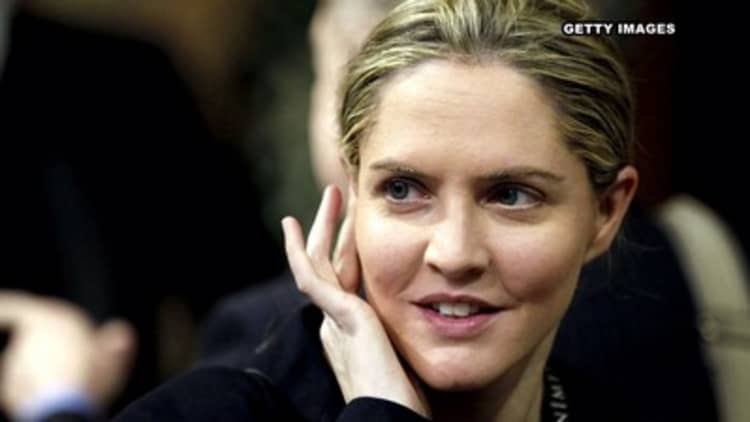While Republicans in Washington struggle with their economic agenda, Democrats are searching for a new one. And they appear in a mood to take risks.
The most influential think tank in Democratic politics has just offered new proposals casting aside the caution that constrained Hillary Clinton's 2016 campaign. Not only did the Center for American Progress embrace new spending of more than $200 billion a year, its "Marshall Plan for America" called for alleviating working-class economic strains through direct government creation of 4.4 million jobs.
Ever since the FDR era, Democrats have favored more expansive government than Republicans. Ever since the Reagan era, they have done so gingerly for fear of "big government" attacks wielded effectively by conservatives.
The pendulum has begun to swing, unfortunately for Republicans, back in the direction of government doing more.Kristen Soltis AndersonRepublican pollster
In particular, they've been vulnerable to a backlash by white middle- and working-class voters who fear that government spending benefits others while they bear the burdens of taxation. But President Donald Trump's extraordinary success in rallying those voters — while Clinton failed to generate comparable enthusiasm among young and minority voters — is prompting new approaches.
"The only positive result of the entire Trump experience is that it has widened the aperture of the entire policy debate," said Neera Tanden, the center's president and a former Clinton advisor. In an era of globalization and technological change, she adds, the 2016 campaign exposed "a deep anxiety about what the future of jobs will be in this country."

In response, the center proposed spending $158 billion a year to create jobs filling community needs in such occupations as home-care workers, child-care providers, teacher's aides, and emergency medical technicians. Its proposal envisions jobs paying $15 an hour, or about $36,000 per year.
In addition, the center proposed spending $50 billion per year on modernizing schools and expanding child-care facilities. The goal is appealing to both blue-collar whites at the core of Trump's coalition and younger and minority workers in their own base.
Polls may be pointing in the right direction
There's some public opinion evidence that Americans may be receptive. In last month's NBC News/Wall Street Journal Poll, 57 percent said they want government to do more to meet people's needs, compared with 39 percent who said government does too much.
That compared with a far narrower 50 percent to 46 percent spread in mid-2015. The pro-government majority included 63 percent of those ages 18-34 and 56 percent of white, working-class Americans.
"The pendulum has begun to swing, unfortunately for Republicans, back in the direction of government doing more," observed Kristen Soltis Anderson, a Republican pollster with special expertise on younger voters.
Others see the boldness of a throwback to direct government job creation as its own virtue. Even with its echoes of Roosevelt's New Deal, "I think it will sound new," says Democratic pollster Margie Omero.
As a 2016 candidate, Trump appealed to working-class voters as a new sort of Republican who favored protecting middle-class programs and spending more on infrastructure. But as president, there are signs he is wavering on the former, while he hasn't yet made any progress on the latter.
The gamble for Democrats is that such approaches may not lure white working-class voters drawn to Trump on other issues such as his hard-line immigration stance. Democrats could also face resistance from their more affluent, better-educated, market-oriented supporters.
In the 21st century, "people think economic growth comes from the private sector," noted 2016 Clinton advisor Joel Benenson, who worries that creating a large number of government jobs may be "a hard sell."
But Geoff Garin, who managed Clinton's 2008 campaign, said voters view infrastructure spending such as the school modernization proposals as investments in growth. He said he sees political appeal in the creation of government jobs "as long as they're raising taxes on rich people" to pay for them.
"With the benefit of hindsight," Garin added, Clinton might have fared better last November with a "bigger and bolder economic agenda."
Watch: Growing fake news bubble for liberals



